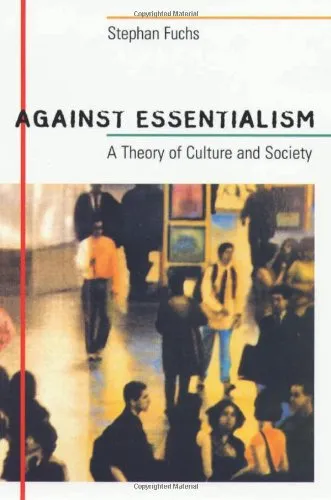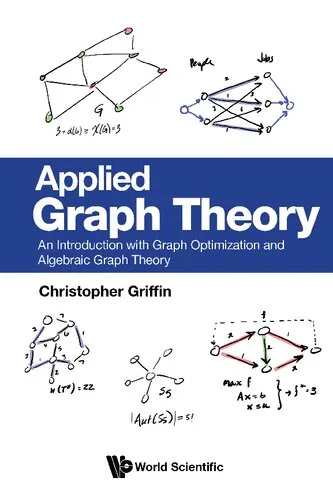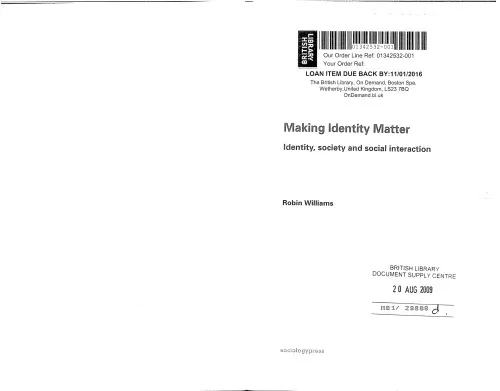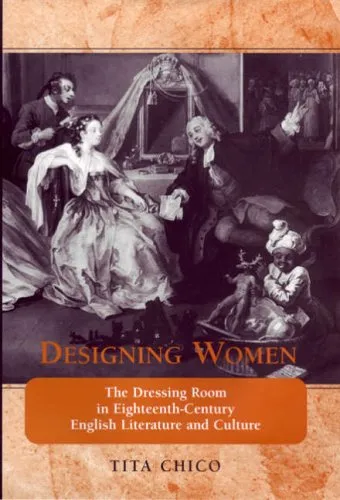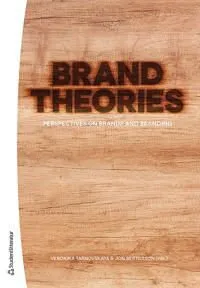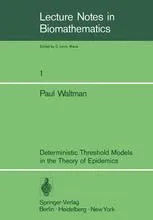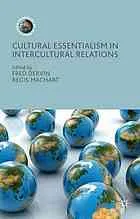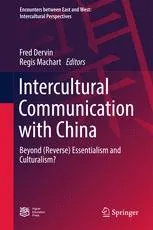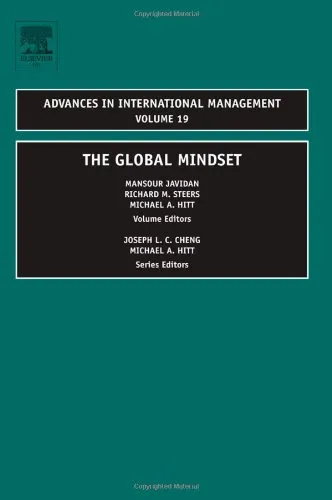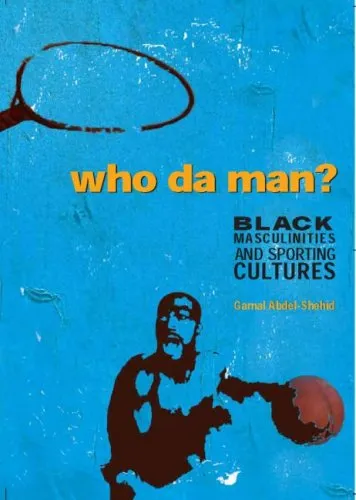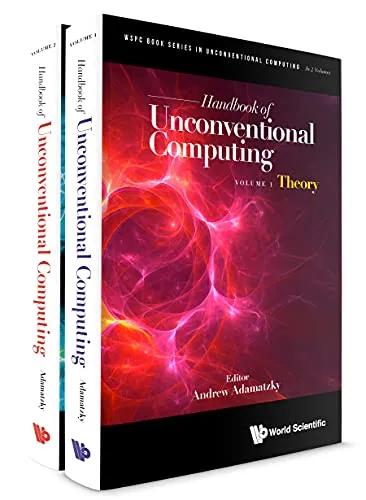Against Essentialism: A Theory of Culture and Society
4.0
بر اساس نظر کاربران

شما میتونید سوالاتتون در باره کتاب رو از هوش مصنوعیش بعد از ورود بپرسید
هر دانلود یا پرسش از هوش مصنوعی 2 امتیاز لازم دارد، برای بدست آوردن امتیاز رایگان، به صفحه ی راهنمای امتیازات سر بزنید و یک سری کار ارزشمند انجام بدینکتاب های مرتبط:
معرفی کتاب «Against Essentialism: A Theory of Culture and Society»
کتاب «Against Essentialism: A Theory of Culture and Society» اثر استیفن فوکس به نقد ریشهای ایدههای essentialism در علوم اجتماعی و فرهنگی میپردازد. این کتاب با نگاهی جامعهشناختی و انسانشناختی، خواننده را به تحلیل ساختاری میبرد تا پیچیدگیهای فرهنگ و جامعه را از چشماندازی غیراساسیگرایانه مورد بررسی قرار دهد.
خلاصهای از کتاب
در این کتاب، فوکس ابتدا اصول و پایههای essentialism را معرفی کرده و سپس چرا و چگونه این دیدگاه میتواند مفاهیم اجتماعی و فرهنگی را محدود کند، توضیح میدهد. او معتقد است که دستهبندیهای ساده و ازپیشتعریفشده فرهنگی، باعث سادهانگاری مباحث پیچیده اجتماعی میشوند.
نویسنده به ایدههایی میپردازد که بر پایه essentialism ساخته شدهاند و نشان میدهد که این دیدگاهها اغلب انعطافپذیری تحلیلی لازم برای درک پویاییهای واقعی جامعه را ندارند. او با مثالهای گسترده از علوم اجتماعی، مردمشناسی و نظریه فرهنگی به چالش کشیدن مفاهیم مثل هویت، قومیت، جنسیت و طبقه میپردازد.
فوکس تاکید میکند که فرهنگ و جامعه به صورت شبکهای از ارتباطات و تعاملات شکل میگیرد و نباید آنها را به دستهبندیهای ثابت و تغییرناپذیر تقلیل داد. او در نهایت از جایگزینی مدلهای تحلیلی essentialist با یک چارچوب dynamic و adaptive دفاع میکند که بتواند حرکت، تغییر و پیچیدگی را بهتر توضیح دهد.
نکات کلیدی کتاب
- نفی دستهبندیهای ساده و ثابت فردی و اجتماعی.
- ارائه جایگزینهای نظری برای تبیین بهتر تغییر و پویایی در فرهنگ.
- تحلیل عمیق نظریه essentialism در علوم اجتماعی و تاثیرات منفی آن.
- تشویق به دیدگاهی غیراساسیگرایانه در بررسی مسائل فرهنگی و اجتماعی.
نقلقولهای معروف از کتاب
«essentialism تفکر را محدود کرده، اما زندگی اجتماعی همیشه متغیر، پیچیده و ناپایدار است.»
«تحلیل فرهنگی واقعی نیاز به انعطافپذیری و توجه به زمینهها دارد؛ نه سادهسازیهای مفهومی.»
«هویتها، فرایندها هستند، نه محصولات ایستا؛ این مفهوم کلیدی فهم فرهنگ در دنیای چندبعدی امروز است.»
چرا مطالعه این کتاب اهمیت دارد؟
در دنیای امروز، که مرزهای فرهنگی و اجتماعی به سرعت تغییر میکنند، درک فرهنگ و جامعه براساس دیدگاههای پویا به جای دستهبندیهای ثابت بسیار حیاتی است. «Against Essentialism» به ما کمک میکند تا از چارچوبهای تحلیلی موجود فراتر برویم و نگاه دقیقتر و عمیقتری به پیچیدگیهای اجتماعی داشته باشیم.
این کتاب همچنین به پژوهشگران، دانشجویان و علاقهمندان به علوم انسانی ابزاری برای تفکر انتقادی درباره نظریههایی که کلید تحلیل اجتماعی محسوب میشوند، ارائه میدهد. با مطالعه این اثر، خواننده میتواند نهتنها ایدههای قدیمی را به چالش بکشد، بلکه به سمت ساخت مدلهای جدید و انعطافپذیرتر برای فهم جامعه سوق پیدا کند.
Against Essentialism: A Theory of Culture and Society
In Against Essentialism, I set forth a bold and provocative critique of essentialist concepts in sociology, culture, and social theory. This book attempts to dismantle old paradigms that assume static essences in understandings of society and culture. By challenging essentialism, I advocate for a more fluid and dynamic conceptual toolkit that reflects the complexities of our modern social world. Leaning on the traditions of constructivism and relational sociology, the book explores how identities, cultures, and social categories are not given entities but rather constructed through social processes and interactions.
The modern world often operates with fixed definitions for what counts as culture, identity, or even “truth.” My critique reveals the limitations of this thinking, arguing instead for a theory based on variability, pluralism, and contingency. Essentialism, which presumes foundational truths or core characteristics, hinders our ability to grapple with the vast diversity of social phenomena. This book provides a theoretical alternative that underscores flexibility and construction, helping readers gain deeper insights into the mechanisms that create and sustain societal norms and systems.
Detailed Summary of the Book
The central thesis of Against Essentialism is that essentialist thinking is ill-suited to understand the dynamics of culture and society. By assuming that cultural categories, group identities, or social roles inherently possess fixed traits, essentialism simplifies the complexity inherent in social worlds.
The book is divided into several theoretical explorations. First, it outlines the problems caused by essentialist paradigms, especially in sociological research and cultural studies. It critiques the tendency to assign "static" and "naturalized" essences to constructs such as gender, race, ethnicity, or organizational cultures. Such practices often ignore the relational and constructed nature of these categories.
Next, the book presents relational alternatives. Inspired by constructivist traditions, I emphasize the importance of seeing identities, cultures, and systems as ongoing "social accomplishments" rather than pre-existing entities. By focusing on how these elements are actively produced in practice, scholars can better engage with the dynamic and conflictual processes that shape the social sphere.
Finally, Against Essentialism critiques the impact of essentialist perspectives on public discourse, politics, and knowledge production. Whether considering debates over national identities, organizational structures, or cultural hierarchies, essentialism sustains exclusionary boundaries and oversimplifies the fluid nature of human life. Readers are invited to adopt a more critically reflective and flexible framework for analyzing these issues.
Key Takeaways
- Essentialism defines identities, cultures, and social constructs as having fixed "essences," which can be misleading and reductive.
- Relational sociology offers a more dynamic and process-oriented view, focusing on the ongoing production of cultures and identities through interactions.
- Static definitions of society fail to address the complexities of modern life and can perpetuate harmful exclusionary practices.
- Shifting to a constructivist framework allows scholars and practitioners to analyze complexity, diversity, and change more effectively.
- The book provides critical insights that are applicable to fields ranging from sociology to political science and cultural studies.
Famous Quotes from the Book
"Essentialism is not just a theory, but a habit of thought—one that restricts our imagination and blinds us to the complexities of social life."
"There are no essences to be found in culture and society—only processes, interactions, and the dynamic relationships that constitute them."
"To understand the world, we must abandon the search for fixed truths and instead embrace the fluidity of human experience."
Why This Book Matters
In a world where divisions and rigid categorizations dominate social and political debates, Against Essentialism is a timely and necessary intervention. By challenging essentialist thinking, the book provides readers with the theoretical tools to question conventional norms and embrace more inclusive, flexible perspectives.
This book introduces readers to a constructivist framework that recognizes how identities and cultures are continuously shaped and reshaped through social interactions. It is an essential read for scholars, educators, policymakers, and anyone seeking a deeper understanding of the complexities of culture and society.
In an academic climate increasingly critiqued for its reliance on broad and oversimplified categories, Against Essentialism serves as a guide to move toward more nuanced and dynamic approaches. Above all, it reminds us of the inherent creativity and variability of human life, urging us to reconsider the labels we use and embrace a more relational way of thinking about the world.
دانلود رایگان مستقیم
شما میتونید سوالاتتون در باره کتاب رو از هوش مصنوعیش بعد از ورود بپرسید
دسترسی به کتابها از طریق پلتفرمهای قانونی و کتابخانههای عمومی نه تنها از حقوق نویسندگان و ناشران حمایت میکند، بلکه به پایداری فرهنگ کتابخوانی نیز کمک میرساند. پیش از دانلود، لحظهای به بررسی این گزینهها فکر کنید.
این کتاب رو در پلتفرم های دیگه ببینید
WorldCat به شما کمک میکنه تا کتاب ها رو در کتابخانه های سراسر دنیا پیدا کنید
امتیازها، نظرات تخصصی و صحبت ها درباره کتاب را در Goodreads ببینید
کتابهای کمیاب یا دست دوم را در AbeBooks پیدا کنید و بخرید
1433
بازدید4.0
امتیاز0
نظر98%
رضایتنظرات:
4.0
بر اساس 0 نظر کاربران
Questions & Answers
Ask questions about this book or help others by answering
No questions yet. Be the first to ask!
